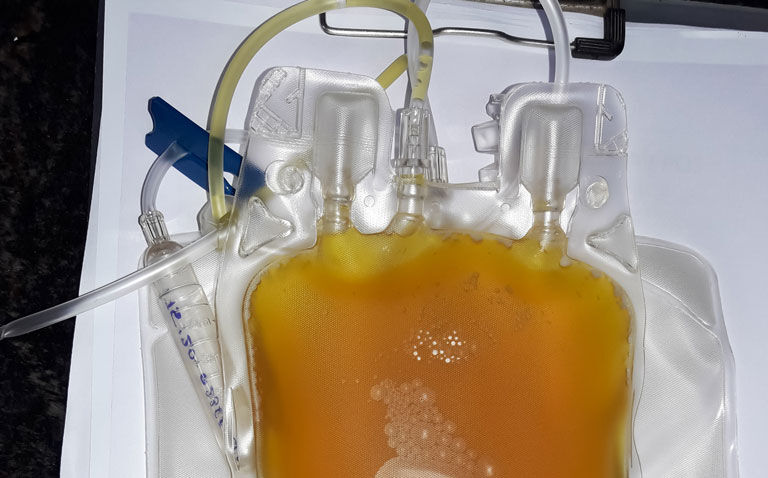Convalescent plasma use in people unvaccinated against COVID-19 significantly reduced the need for hospitalisation due to disease progression, according to a US study
Convalescent plasma (CP) use in people unvaccinated against COVID-19 within 9 days of symptom onset, led to a significant reduction in the proportion of individuals requiring hospital admission due to disease progression. This was the conclusion of a randomised, double-blind, controlled trial by a multidisciplinary group of researchers from New York, US.
CP use represents a form of passive antibody therapy that relies on the transfer of pathogen-specific antibodies from a recovered patient for the purpose of preventing or treating disease. It has been successfully used in the past for the management of patients with severe acute respiratory syndrome and early indicators suggested that transfusion of convalescent plasma was safe in hospitalised patients with COVID-19.
Furthermore, preliminary results among patients hospitalised with severe COVID-19 were encouraging, with the authors of one study concluding that convalescent plasma is potentially effective against COVID-19.
Nevertheless, in a Cochrane database living systematic review in May 2021, the authors commented on how they had high certainty in the evidence that convalescent plasma for the treatment of individuals with moderate to severe disease does not reduce mortality and has little to no impact on measures of clinical improvement.
Whether CP might help prevent disease worsening in those with less severe disease is uncertain and the available evidence is mixed. For example, one study found that early administration of high-titer convalescent plasma against COVID-19 to mildly ill older adults, reduced the progression of the illness.
By contrast, in a study where the authors set the primary outcome as disease progression within 15 days after randomisation, it was concluded that administration of convalescent plasma to high-risk outpatients within 1 week after the onset of symptoms of COVID-19 did not prevent disease progression.
With some uncertainty over the role of CP in less severe disease, for the present study, the US team examined the value of administering CP within 9 days of COVID-19 symptom onset to determine if the treatment prevented disease progression leading to hospitalisation.
They recruited adults testing positive for the virus and randomised them 1:1 to either CP or control plasma, with both transfused over 1 hour period within 24 hours of enrolment. The primary outcome was COVID-19-related hospitalisation within 28 days after the transfusion.
Convalescent plasma use and disease progression
A total of 1181 individuals with a median age of 43 years (57.2% female) were included with 592 given CP and median time from symptom onset to transfusion was 6 days. Co-morbidities were well matched and among those receiving CP included hypertension (23%) and those with a BMI > 35 (16.4%) with 83.3% of those given CP (and a similar proportion in the control group) unvaccinated against COVID-19.
The primary outcome occurred in 2.9% of those receiving CP and 6.3% of those given control plasma (absolute risk reduction = 3.4% (95% CI 1.0 – 5.8%, p = 0.005). Among those who were hospitalised, virtually all (53 of 54) were unvaccinated against COVID-19.
The authors concluded that giving convalescent plasma within 9 days of COVID-19 symptom onset reduced disease progression leading to hospitalisation.
Citation
Sullivan DJ et al. Early Outpatient Treatment for Covid-19 with Convalescent Plasma N Engl J Med 2022










